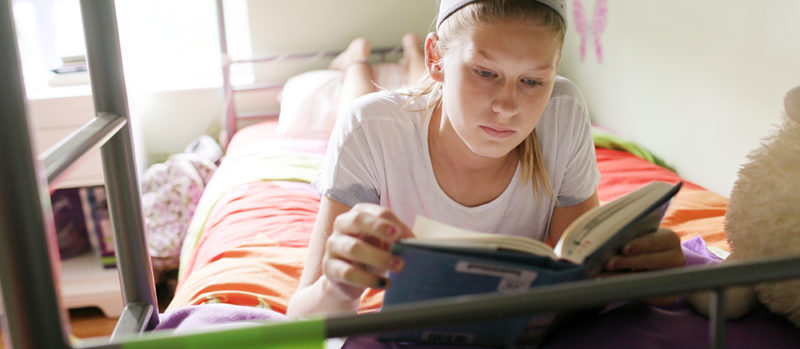This could easily be a satirical blog post where the author writes “250 Easy Ways to Simplify Your Family’s Morning Routine!” Because, let’s be honest, the morning struggle is real. Getting your family out of the house on time, without any tears, seems like an impossible feat.
Why is it so hard? If only there was a quick and easy answer. I do think that when you factor kids and sleep into any equation, there is more potential for things to get dicey.
I also think that kids are the barometers of our lives and stress levels. When parents are stressed, kids react to it – and in different ways. Some kids fight back. Others cry. Some shut down. But if we’re able to move slowly and calmly in the mornings, they may follow our cues. This, of course, is easier said than done.
I don’t have a one-size fits-all solution for parents in this situation, because every kid and every family is different. What I can offer, is some guidance and practices to try out. See if any of these help. If they don’t, analyze why and try again.
10 Tips for Getting Out of the House With Fewer Tears (Maybe!):
1. Encourage consistent bedtimes and wake times.
This is one of those obvious suggestions. Kids behave better when they’re well rested – we all do! Encouraging a consistent bedtime and wake-up time may help them start the day in a better mood.
2. Try to build some extra time into your mornings.
Again, this is no small feat and will look different in each family. I do think that if kids can have some extra time to wake up gently, they will be better-able to handle the morning rush.
So think about what can you get done the night before to create some extra time in the mornings. Can everyone shower the night before? Pack lunches in the evening? Set clothes out ahead of time? Get backpacks ready to go?
3. Think about the key triggers.
What families need to do to get out of the door in the mornings is pretty similar – eat, get dressed, brush teeth – but the tear-producing triggers can be very different. Think about where and when the tears happen. Can you break it down to one or two triggers? Is it almost always over what he’s wearing? Or the teeth brushing? Putting shoes on? Often these battles are over control. (see below)
4. Then give your kids some control.
Children frequently have meltdowns because they feel like they’re not in control. You can help create a sense of control by giving them options. Maybe put out two or three sets of clothes at night. Or have two toothbrush options. Shoes or boots?
5. Divide and conquer.
We use a lot of dividing and conquering in my house. I’ll make breakfast while you pack your lunch. I think it’s important for kids to learn a sense of independence – but you also have to be realistic about getting out of the door on time. So splitting up the tasks may help.
6. Create a “launching pad.”
This is where you always put the things you need in the same location. Have a consistent place where your shoes, coats, backpacks and keys go, every single day. Seems simple, but can save a lot of time in the mornings.
7. Use incentives where they make sense.
If incentives work for your family, it may be helpful for you to utilize them here. If everyone is ready by 7:00 a.m. every day this week, we’ll go to the movies on Friday. Or create a sticker chart. If everyone makes it through the entire week without a meltdown in the morning, you’ll get a pre-determined reward.
8. Utilize redirection and reminders.
My daughter gets easily derailed by thoughts going through her head, and she wants to tell me about them before she forgets. I’ll redirect her by saying, “keep telling me that story while you pack your lunch.” Other kids may have a hard time continuing what they’re doing while they’re talking. Here I would recommend saying, “I’m going to set a reminder on my phone for us to talk about this after school.” That way, you can still chat about it, but at a more convenient time.
9. Lose the perception of perfection.
If you don’t have time to pack a Pinterest-worthy lunch, that’s okay. No parent is creative all of the time. And no parent does the job perfectly. If things didn’t go as well as you’d hoped this morning, start fresh tomorrow.
10. Determine if anything else is going on.
If your child is fighting you every morning, or refusing to go to school, dig a little further. Bullying, anxiety, and nervousness about an upcoming test, are all reasons that a child might not want to attend. Ask, “That was really rough this morning, what’s going on at school?” I do, however, think that it’s much better to be late to school than to not go at all. Allowing your child to skip is only going to reinforce the anxiety.
If it’s any consolation, please know that you’re not alone in this getting-out-of-the-door pursuit! The morning struggle is hard for every parent. There is no perfect solution, no perfect parent, and no perfect kid! And maybe, just maybe, utilizing a few of these suggestions may help alleviate some of the tears.
That said, if you’re worried that your child is particularly anxious about school, discuss it with your child’s doctor. He or she can help you determine if an appointment with a child psychologist is warranted.
To learn more about our Division of Behavioral Medicine and Clinical Psychology, visit the website or call 513-636-4336.





